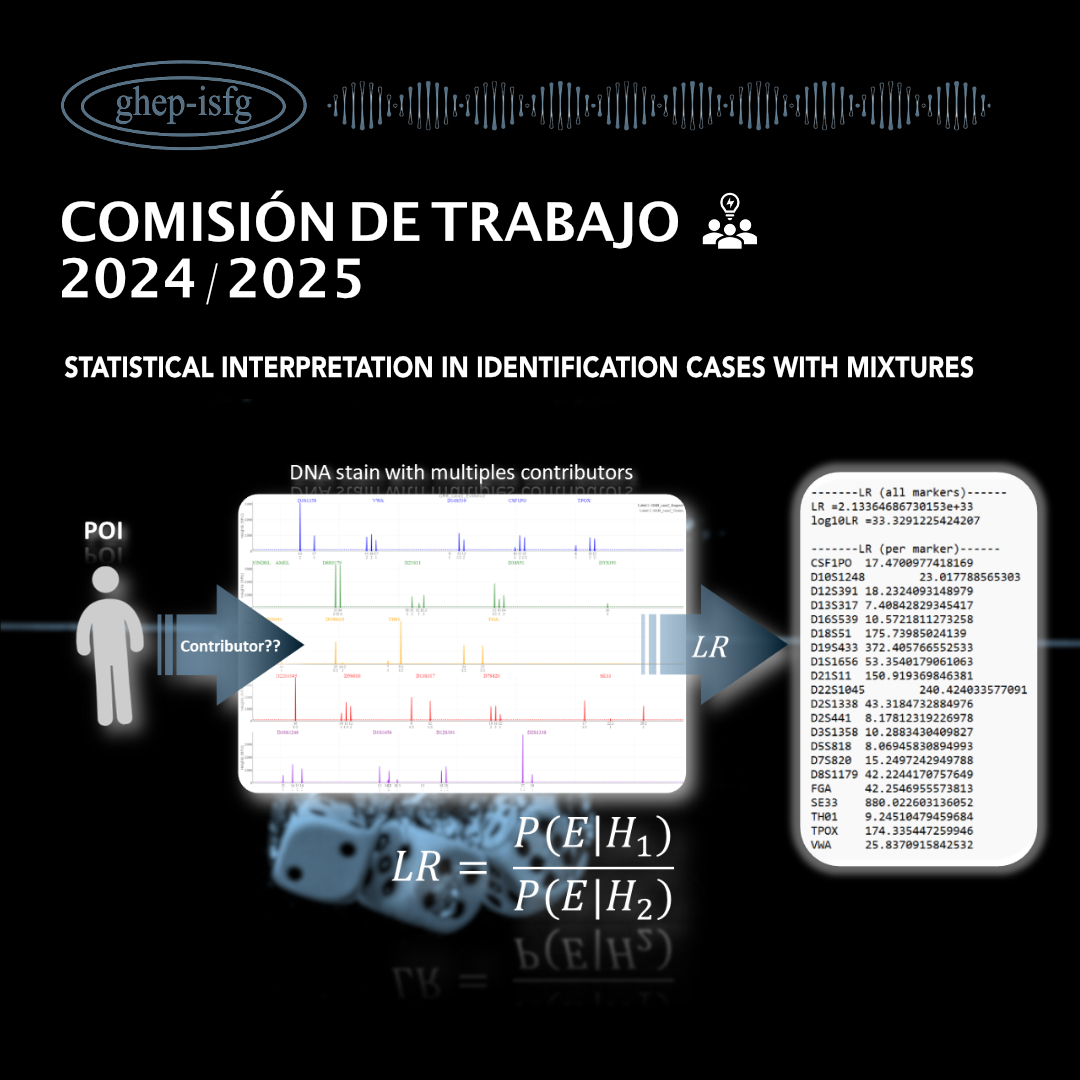STATISTICAL INTERPRETATION IN IDENTIFICATION CASES WITH MIXTURES

Introduction:
With the growing interest in the quantification of forensic genetic evidence, several laboratories have been implementing computer tools in their routine or intend to do it in a near future. In this working commission, we propose the statistical analysis of simulated forensic cases (composed of a mixture and an associated reference sample), in order to have an overview of how identification problems are tackled.
Objectives:
- Understand the state of the art regarding the knowledge, use, and implementation of non-binary tools in the forensic genetic routine.
- Evaluate the different approaches and methodologies used for the statistical interpretation of forensic problems involving DNA mixtures.
Methodology:
Registration for this working commission will be carried out via the GHEP-ISFG website.
After confirming your registration, each participant will have access to a web page with the files necessary to carry out the exercise. Data regarding 20-30 different identification cases, i.e. 40-60 Excel files with STR profiles corresponding to pairs of problem (specifically, a mixture profile with allelic heights) / reference samples, will be made available.
In addition to the result obtained for the 20-30 cases (including total LR and partial LRs, by marker), each participant must provide us with information on i) the computer tool(s) used; ii) parameters’ values and corresponding justification; iii) the database of allele frequencies used; iv) other relevant information to allow the re-computation of the results, namely, the number of estimated contributors for each case analyzed and the hypotheses considered.
Requirements to participate:
- Be member of the GHEP-ISFG and be up to date with their dues.
Deadlines:
- Registration with direct access to STR profiles: July 8 – October 1, 2024. The files may be accessed via this webpage only after having registered in this working commission.
- Deadline for sending results: December 1, 2024 (send to camilac@i3s.up.pt; Cc: npinto@i3s.up.pt; lourditasmt@gmail.com)
Coordinators and contacts:
- Camila Costa, i3S, FCUP, Porto, Portugal; camilac@i3s.up.pt
- Nádia Pinto, IPATIMUP/i3S, Porto, Portugal; npinto@i3s.up.pt
- Lourdes Prieto, Institute of Forensic Sciences of the University of Santiago de Compostela; DNA Laboratory of the General Scientific Police Station, Madrid, Spain; lourditasmt@gmail.com
Note:
- Each laboratory may include a maximum of two co-authors in a possible publication.